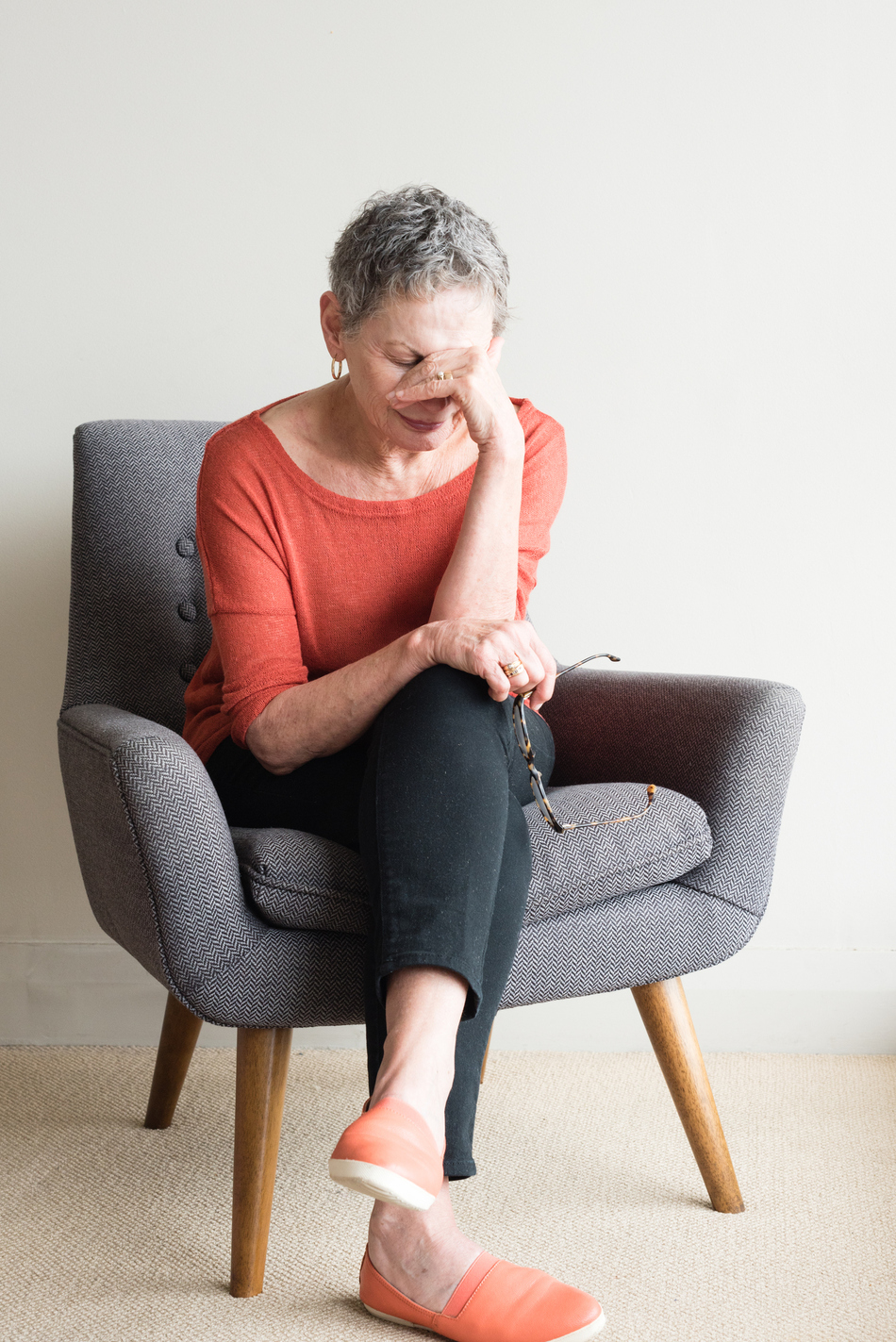
Episode Transcript
Dr. Jones: We are all anxious from time to time and that's normal, but what if it seems to be all the time? This is Dr. Kirtly Jones from Obstetrics and Gynecology at the University of Utah Health and this is anxiety on The Scope.
Announcer: Covering all aspects of women's health, this is The Seven Domains of Women's Health with Dr. Kirtly Jones on, The Scope.
Dr. Jones: Anxiety is a normal response to stress, and stress is hard to define but you know when you feel it. Biologically, we define stress as that which activates the stress cascade of hormones. The brain feels stress, sends messages to our pituitary to send messages to the adrenal gland, to send out more cortisol and norepinephrine. Now, those two hormones makes us a little shaky, our tummies uneasy, and our hearts beat faster. Then when the stressful thing is over, we calm down.
The exam is over, the wedding is over, we hear the front door close at midnight, we know that our teenager is home, but what happens if we don't calm down? What happens if we're anxious all the time? And what if we're anxious about things we shouldn't really be anxious about? Washing our hands, going out in public, checking to see if the door is locked over and over, that kind of anxiety makes you sick.
So anxiety disorder is when the anxiety response to stress becomes hard to control and is out of proportion to the stress and affects your daily day-to-day life. Anxiety disorders are diagnosed twice as frequently in women as in men. Now, there are a couple reasons this may be so. One is that women are more likely to admit anxiety and seek help than men. Another is that women are wired differently to respond to stress. The fight or flight mechanism, "protect your babies, mama bear," is activated more readily in women than men.
Some scientists think that estrogen and progesterone, made in the normal menstrual cycle and in high amounts during pregnancy, may contribute to this difference between men and women. And women tend to react to stressors in their life differently. Men may respond to stress in a more active way, to punch the guy out or yell about it, and then get over it. Women tend to ruminate, think about it over and over, and that leads to chronically elevated levels of stress and stress hormones that makes it harder to calm down. And the brain becomes wired to overreact to stress.
Women and men who've been physically or psychologically stressed as children rewire their brains to overreact to stress. Women who've been sexually abused may have had the same response. Cultures and environments are different as to what may be perceived as stressful. Asian cultures put a bigger emphasis on shame as a result of causing embarrassment to family and not meeting family expectations. This can be a cause of chronic anxiety. Women and men in the West, not so much. Women with General Anxiety Disorder worry excessively about day-to-day things like health or money, and work, and family. This gets in the way of normal coping mechanisms. This can also increase the risk of panic attacks, episodes of acute terror when there's no actual danger.
The physical symptoms of panic attack can include chest pain, difficulty breathing, and a sense of impending doom or death. And some women have specific phobias or irrational fears, such as fear in social situation or of germs or heights. We all can be overwhelmed in crowds or worried about germs, but for some women, these fears rule their life.
So what to do? Let's play the RULER game again. R is for recognize. U is for understand. L is for label. E is for explain. And R is for regulate. When you are feeling something overwhelming, is it that you have felt this before in this situation? Can you label it now as anxiety? Can you help others to understand how you feel? And can you regulate it? For many, the first step maybe cognitive behavioral therapy, CBT. This takes time and practice. But when you recognize, understand, and label your symptoms, you can change your thinking patterns, change the channel and try to come down physiologically.
Some women have found that daily exercise, yoga, and meditation practice help them deal with anxiety. There are a number of medications that have been successfully used to treat anxiety disorder. The most common and successful for many people includes a group of drugs called SSRIs that can change brain chemistry a little to help your brain not overreact with stress hormones. Now, there's some trial and error in that no one therapy works exactly the same for everyone, and some people need more than one drug. Working with your mental health professional will help you with the menu of options, which can include CBT and medications. And of course, you can change some of your own responses.
Of course, great concern to parents, family, health and law enforcement professionals, and society is the trend for many women and men to self-medicate with alcohol, marijuana, opioids, and other people's drugs, including valium-like drugs. Self-medicating anxiety has helped lead to addiction, overdose, and suicide. So if you're struggling, don't struggle on your own. There's a lot that can be done, and you can learn to control your anxiety and use prescribed medications correctly. Feeling anxious all the time is awful and it's isolating, and you don't have to do this alone. Check out womenshealth.gov for more information on anxiety in women, and thanks for joining us on The Scope.
Announcer: Have a question about a medical procedure? Want to learn more about a health condition? With over 2,000 interviews with our physicians and specialists, there’s a pretty good chance you’ll find what you want to know. Check it out at TheScopeRadio.com.